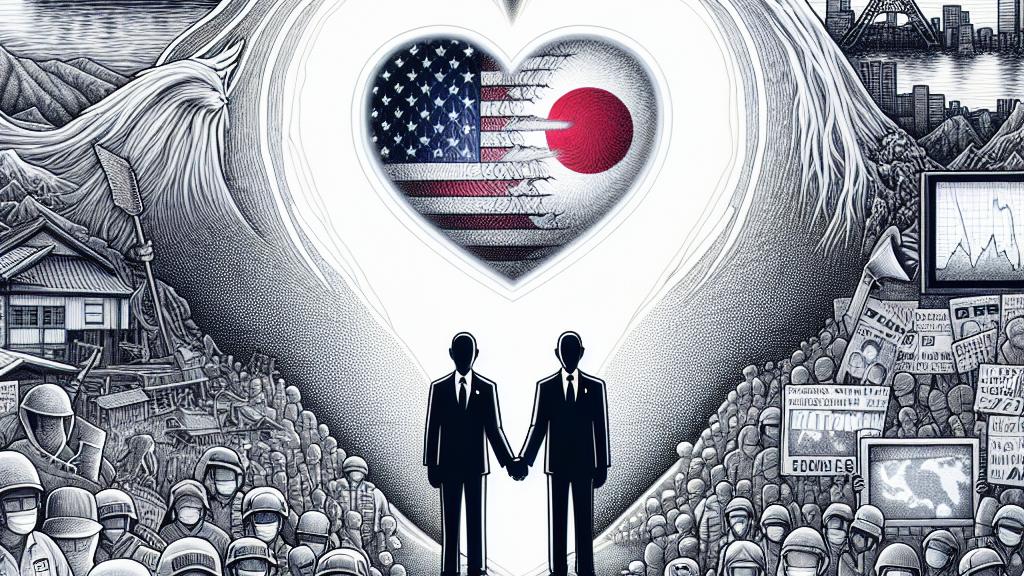Reaffirming Ties: U.S. and Japan Commemorate Taiwan's 921 Earthquake Anniversary
Overview
- U.S. and Japan forge deeper relationships by reflecting on Taiwan's past.
- This ceremony commemorates the 25th anniversary of the tragic 921 earthquake.
- Shared commitments during disasters highlight the strength of mutual support.

Commemoration of a Devastating Event
On September 21, 2024, a significant event unfolded in Taiwan as envoys from the United States and Japan gathered to honor the 25th anniversary of the catastrophic 921 earthquake. The earthquake, which struck central Taiwan in 1999 with a devastating magnitude of 7.3, left an indelible mark on the island—claiming nearly 2,500 lives and causing extensive destruction to buildings and infrastructure. In a heartfelt video presentation, U.S. envoy Raymond Greene and his Japanese counterpart Kazuyuki Katayama conveyed a powerful message: that through trials and tribulations, their nations, along with Taiwan, have cultivated a deep and resilient partnership. They reflected on moments of solidarity, such as Taiwan's rapid provision of protective masks during the global COVID-19 crisis, showcasing the enduring nature of their alliance. This history of mutual aid serves as a compelling reminder that strength is found not only in independence but in unity.
Lessons from the 921 Earthquake
The aftermath of the 921 earthquake is a rich tapestry woven with stories of resilience, reconstruction, and education. The establishment of the 921 Earthquake Museum stands as a striking testament to this; it honors the victims and teaches future generations about the power of nature. Within its walls lies the Chelungpu Fault Gallery, where visitors can marvel at the geological shifts that shaped the landscape, serving not only as a memorial but also as a classroom for earthquake engineering principles. These lessons become even more poignant when paralleled with Japan’s experiences, particularly the catastrophic 2011 earthquake and tsunami. Similar to Taiwan, Japan has embraced these experiences as catalysts for improvement in disaster preparedness and community resilience. This interconnected narrative highlights the significance of sharing knowledge across borders, empowering one another to face future challenges with informed composure.
Continued Cooperation in the Face of Adversity
The partnership among Taiwan, the United States, and Japan is a beacon of hope and a model for international cooperation amid uncertainty. Recently, Taiwan faced a new challenge with a powerful 7.2 magnitude earthquake in April 2024 that tragically led to loss of life and extensive damage. The prompt and coordinated response from the U.S. and Japan not only exemplified their unwavering solidarity but underscored their commitment to stand together in times of crisis. This cooperation extends beyond disaster response, serving as a collective effort to promote democratic values and regional security. Their united front sends a resounding message: by working together, nations can not only confront disasters but also bolster their resilience for the future. In doing so, Taiwan, the U.S., and Japan reinforce the belief that mutual support and shared values are paramount in building a more resilient international community.

Loading...